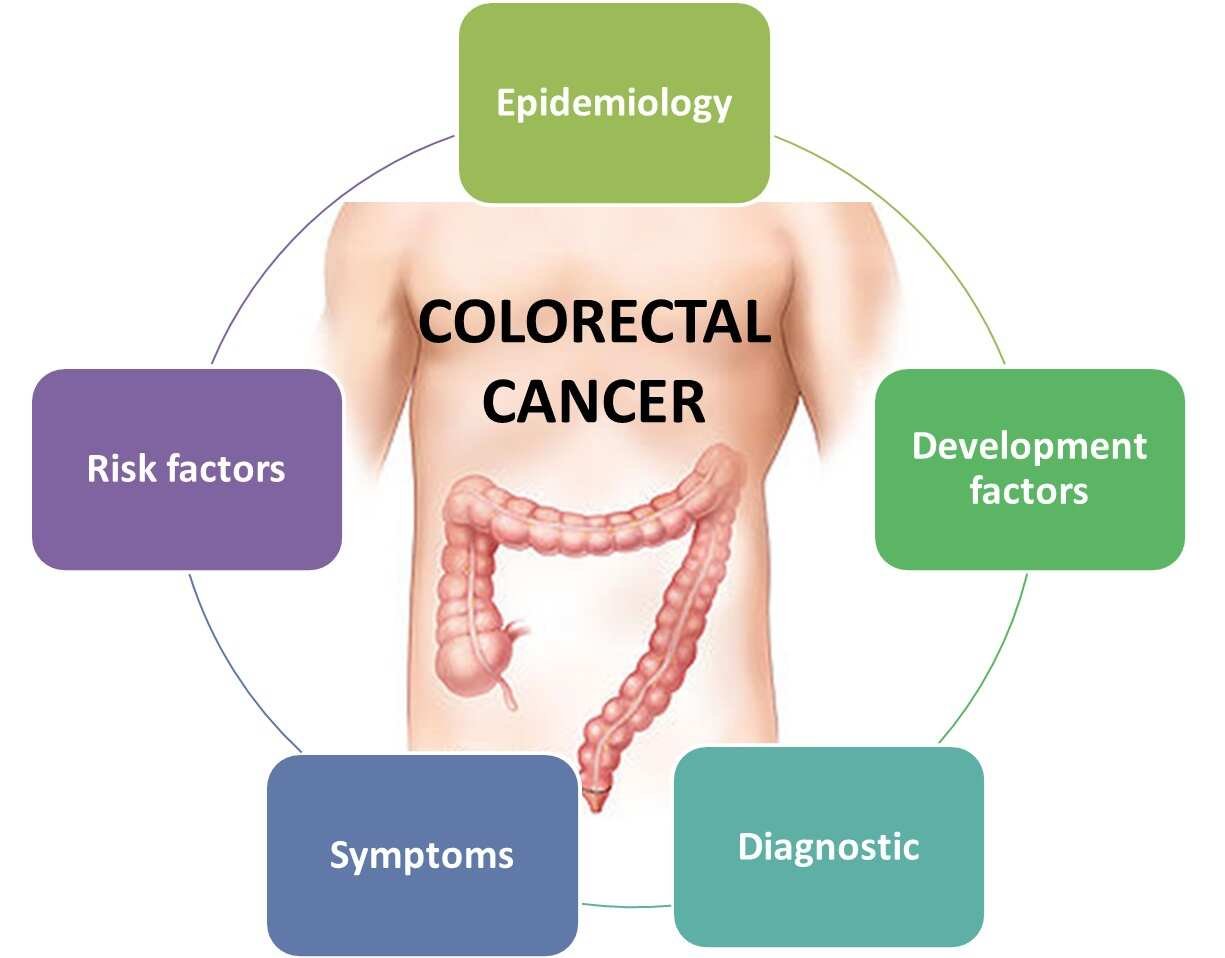Colon cancer is a type of malignant tumor that occurs when certain cells in the colon, part of the large intestine, begin to grow uncontrollably. The large intestine is the final section of the digestive system, where food is processed and nutrients are absorbed for the body’s use.
Normally it is seen in old age but it can occur in anyone at any age, and in a particular case, it occurred at a younger age. It usually begins as small populations of cells; they are termed adenomatous polyps which develop in the large intestine. These are in general benign tumors, but a minority can turn malignant and become colon cancer at some future date.
Colon Cancer: Life Style Modifications for Prevention and Control
Polyp mostly has no symptom and therefore it is important to frequently check the colon with a view of early detection of the polyps. Cancer of the colon can therefore, be prevented with due assistance of the procedure that involved detection and elimination of polyps.
In case colon cancer happens, many cures are also found managing it. These treatments are surgery, radio therapy and medicines but consist of chemotherapy, targeted therapy and immunotherapy.
It’s common to find colon cancer referred to as colorectal cancer which combines cancer of the colon with cancer of the rectum that begins in the rectu.
Symptoms of Colon cancer
It is for this reason that many people with colon cancer do not experience any signs in the early stages. However, with regard to when the signs and symptoms appear, they will largely be determined by size and l ocation of the cancer within the large intestine.
Abdominal discomfort that is novel, for example, bowel movements differing from normal, either more frequent or less.
Cases of a person experiencing stools with blood or bright red stain.
Continued abdominal discomfort/pain/aching/cramping or gas/bloating.
A feeling of incompleteness when bowel does not expel the stool is an aspect held by a client.
Weakness or tiredness.
Losing weight without trying.
When do I need to be making an appointment?
Nevertheless, if you have the symptoms for an extended period, you can probably schedule a visit to a healthcare provider.

Risk Factors
Age: Colorectal is one common form of cancer that you have to be careful about, probably after the age of fifty.
Family history: Family history includes one or more probabilities of getting bowel cancer or certain inherited syndrome such as Lynch syndrome and familial adenomatous polyposis if you have been a previous encounter with them.
Personal history: Thus, the probability to need it may have already been enhanced often from having had cancer in the colorectal area or being known to harbor polyps of specific types.
Lifestyle: If you take a lot of processed meat, take little fruits and vegetables, do little exercises, become an obesity, smoking and making a lot of alcohol beverages you will be the disease.
Diagnosis
When the cancer is in the colon or rectum ( known as colorectal cancer) the physician can tell if the patient has it by a physical exam, other tools like … ultrasound or CT scan or MRI scans. They may decide to examine downwards your colon through colonoscopy, sigmoidoscopy or may remove samples of the suspected tissue through biopsy to find out the most appropriate remedy. They may also confirm certain indicators or a particular genotype .
Prevention
The following are the recommendations for the prevention of colorectal cancer from starting in the first place: modifying the current lifestyle by a cosmetic degree and undergoing check up through screening tests.
It is essential not to bring things to your environment that could make you vulnerable occasionally. Any signs of colorectal cancer should be reported to your doctor as soon as possible to increase your chances of the disease’s detection.
The only method of detecting the illness in its preliminary stage is getting a check up regularly for ulcers in colorectal cancer or secondary prevention.
Continuing to consume such food and beverage as much as possible with adequate fruits and vegetables.
Not smoking.
Some physical activities that can be performed include exercising and moving all around.
As a man, to have no more than two or in extreme three alcoholic beverages at the most.
The vast recognition of the disease makes the opportunity to identify colorectal cancer at an early stage provide for a higher response to the treatment and treatment of this pathology. One of the studies pointed out that through polyp formation elimination, the screening may reduce the new cases and deaths from the colorectal cancer. Fecal-based screeners are relatively quick and simple tests that analyse your stool without the need for something more invasive.
Fecal occult blood test (FOBT) is a stool-based diagnostic test, which could be used for the screening of colorectal cancer. The fecal occult blood test checks if there is any presence of blood in the feces that might be related to colorectal cancer or polyps. You need but a drop of urine and send it to the laboratory just to perform some test.
In the event of appearance of blood or any other anomalies in the test, the doctor will recommend either a colonoscopy to be conducted in order to check for colon and rectal cancer or polyps. Stool-based tests are less invasive, do not cause discomfort or pain, and can be used as a suitable method of screening for first-degree colorectal cancer or limited polyps before they develop into cancer. If someone has family history or some of the genetic disorder then such people should discuss with genetic counselor and they should undergo for the genetic test to know how easily they will develop colorectal cancer.

